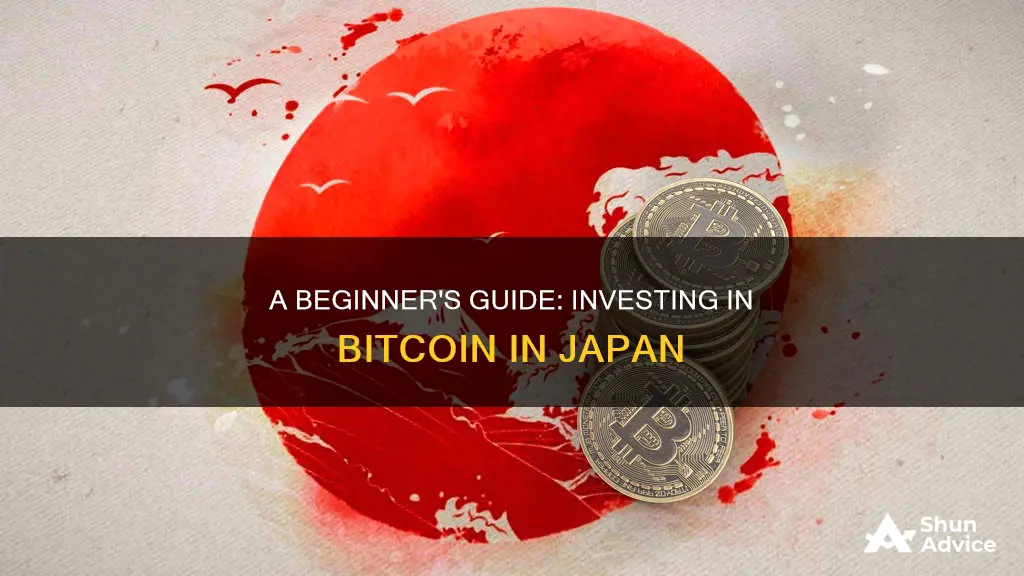
Bitcoin is a cryptocurrency built on blockchain technology. It is a store of value (a currency) that is created entirely digitally and is not owned by a company. It is open-source and publicly distributed so that everyone can use it as a store of value independent of nationality or country. Bitcoin usage is growing in Japan, and it is a popular place to buy Bitcoin. Japan was one of the first regions to start developing regulations for the crypto niche and addressing problems. It now has around 400 crypto-oriented businesses and is leading the way in crypto progress. Japanese regulators are clear about how crypto exchanges should be governed, and when and who undergoes the KYC/AML procedure. The country has approved more than 20 local crypto exchanges, and crypto is legal in Japan.
| Characteristics | Values |
|---|---|
| Crypto-friendly region | Yes |
| Crypto exchanges | Binance, bitFlyer, Coincheck, Bybit, Kraken, DMM Bitcoin, Gate.io, etc. |
| Crypto wallets | Zengo, Ledger Nano S Plus, BlueWallet, etc. |
| Payment methods | Debit/credit card, bank transfer, SWIFT, SEPA, ACH, Faster Payments, etc. |
| Crypto ATMs | Available |
What You'll Learn

Choosing a crypto exchange
When choosing a crypto exchange, it is important to do your research. Here are some key factors to consider:
- Regulation and security: Japan has clear regulations on how crypto exchanges should be governed, including KYC/AML procedures and taxation policies. Ensure the exchange you choose complies with these regulations and has robust security measures in place, such as two-factor authentication (2FA) and cold storage options.
- Reputation and transparency: Research the reputation of the exchange, including user reviews and its history with security and hacks. Transparency about fee structures, transaction times, jurisdictions, and security is also important.
- Fees: Crypto exchanges typically charge fees for transactions, which can vary depending on the platform. Consider how these fees will impact your investing strategy, especially if you plan to make frequent trades.
- Payment methods: Different exchanges offer different payment methods, such as bank transfers, credit cards, or debit cards. Choose an exchange that supports your preferred payment method.
- Asset selection: Not all crypto assets are available on every exchange. Ensure the exchange you choose offers the cryptocurrencies you want to invest in, including Bitcoin and any other specific coins or tokens.
- User experience: Consider how easy the exchange is to use, especially if you are a beginner. Look for an exchange with a user-friendly interface and quick customer support options.
- Liquidity: Choose an exchange with high trading volume and sufficient liquidity to ensure you can easily enter or exit positions.
Some of the popular crypto exchanges available in Japan include bitFlyer, Coincheck, Binance, Bybit, OKX, and Huobi. Compare the features and fees of each exchange before making your decision. Remember to always do your own research (DYOR) and choose an exchange that aligns with your investment goals and risk tolerance.
Doge Coin: Safe Investment or Risky Business?
You may want to see also

Setting up an account
To set up an account to buy Bitcoin in Japan, you can choose from a variety of online cryptocurrency exchanges. These include Bybit, Kraken, bitFlyer, DMM Bitcoin, Gate.io, Binance, CEX.IO, and Coincheck, among others.
Each platform has its own features, fees, security protocols, and supported assets, so it is important to research and choose the one that best suits your needs. For example, Bybit offers a broad selection of assets, diverse Japanese Yen (JPY) deposit options, and 24/7 customer support. On the other hand, bitFlyer is regarded for its ease of use and strong regulatory compliance, while Binance is suitable for both beginners and advanced traders with its simple and advanced trading platforms.
Once you have chosen an exchange, the next step is to create an account. This typically involves visiting the website of the chosen exchange and registering with your personal details, such as your name, email address, and password. As part of the Know Your Customer (KYC) process, you may also need to provide a photo ID and proof of address.
After registering, you will likely need to set up a payment method to fund your account. This can be done by linking a bank account or credit card to the exchange. Different exchanges support different payment methods, so be sure to check that your preferred method is accepted.
With your account set up and funded, you are now ready to start buying and trading Bitcoin. Remember to always do your own research, understand the risks involved, and only invest what you can afford to lose.
Warren Buffett's Take on Bitcoin Investments
You may want to see also

Depositing Japanese Yen
To deposit Japanese Yen into your account on one of these exchanges, you will typically need to link a bank account or credit card to the exchange. You may also be required to complete a Know Your Customer (KYC) verification process, which involves providing a photo ID and proof of address. This is a standard legal requirement for exchanges in Japan.
Once your account is verified and linked to your bank or card, you can initiate a transfer of funds to the exchange. Depending on the payment method, the funds may appear in your account instantly or may take a few days to process.
It is worth noting that each exchange may offer different payment methods, fees, security features, and supported cryptocurrencies. For example, bitFlyer offers two trading platforms: 'Easy Exchange', which is designed for simple JPY to BTC conversions, and the 'bitFlyer Lightning Platform', which caters to more advanced cryptocurrency traders.
When choosing an exchange, it is important to consider your own needs and preferences in terms of supported currencies, payment methods, security, and ease of use. Additionally, always ensure you are using a secure internet connection when conducting transactions, as public WiFi may pose security risks.
Jamaicans: Your Guide to Investing in Bitcoin
You may want to see also

Buying Bitcoin
There are several ways to buy Bitcoin in Japan, with many platforms, apps, and exchanges available to choose from. Here is a step-by-step guide to buying Bitcoin in Japan:
Choose a Platform or Exchange:
Select a trusted and regulated platform or exchange that operates in Japan, such as bitFlyer, Coincheck, Binance, or Transak. These platforms offer different features, fees, security measures, and payment methods, so it is important to research and choose the one that best suits your needs.
Register and Verify Your Account:
Sign up by creating an account on your chosen platform. You will then need to complete a Know Your Customer (KYC) process to verify your identity and address. This usually involves providing a photo ID, such as a passport or driver's license, and may also include additional documents.
Set Up a Payment Method:
Link a payment method to your account, such as a bank account or credit card. Different platforms offer various payment options, including bank transfers, credit and debit cards, wire transfers, and cryptocurrency wallets.
Buy Bitcoin:
Once your account is set up and funded, you can purchase Bitcoin. It is important to note that you don't have to buy a full Bitcoin, as most exchanges allow you to buy a fraction of a Bitcoin.
Withdraw to a Personal Wallet (Optional but Recommended):
For added security, it is recommended to withdraw your Bitcoin to a personal crypto wallet. This could be a hot wallet, which is connected to the internet, or a cold wallet, which is offline and often considered more secure. Examples of crypto wallets include Ledger Nano S Plus, Blockchain.com, Exodus, and Electrum.
When buying Bitcoin or any other cryptocurrency, it is important to remember that the value of these assets can fluctuate, and there is always the risk of losing money. Always do your own research and consider your financial situation and risk tolerance before investing.
Which Crypto Coins Are Attracting Institutional Investors?
You may want to see also

Sending Bitcoin to a personal wallet
Once you have purchased Bitcoin from an exchange, it is important to withdraw it to your own non-custodial wallet for security, privacy, and to have full control over your Bitcoin. Leaving your coins on an exchange poses a security risk as many exchanges are targets for hackers. Storing your own coins on your personal hardware wallet mitigates that risk.
- Retrieve and enter the recipient's Bitcoin address: To send Bitcoin, ensure you have the correct Bitcoin wallet address. Bitcoin transactions are irreversible, so it is crucial to triple-check that the Bitcoin wallet address is correct.
- Enter the amount of Bitcoin to transfer: Specify the amount of Bitcoin you wish to send. This amount must be smaller than the total Bitcoin in your account; otherwise, the transaction will be rejected. Remember that you must also pay a network fee to send the transaction, so ensure you have enough to cover that too.
- Confirm and send your Bitcoin: When you hit confirm on the proposal, your wallet uses your private key to sign the transaction. The transaction is then sent to the blockchain nodes, which verify and execute the request.
It is important to note that the process of sending Bitcoin may vary depending on the type of Bitcoin wallet you are using. Additionally, most of the time, sending Bitcoin is not free due to network fees, also known as gas fees. These fees are paid to miners who execute your transaction, and they vary depending on the size of the transaction and network usage at the time.
The Ultimate Guide to Long-Term Ripple Bitcoin Investing
You may want to see also







